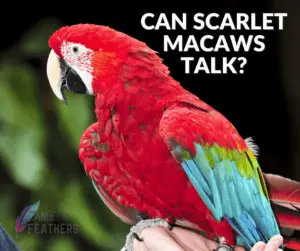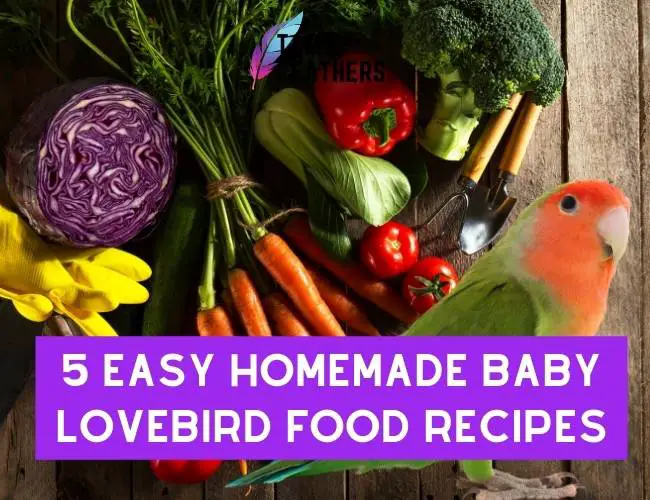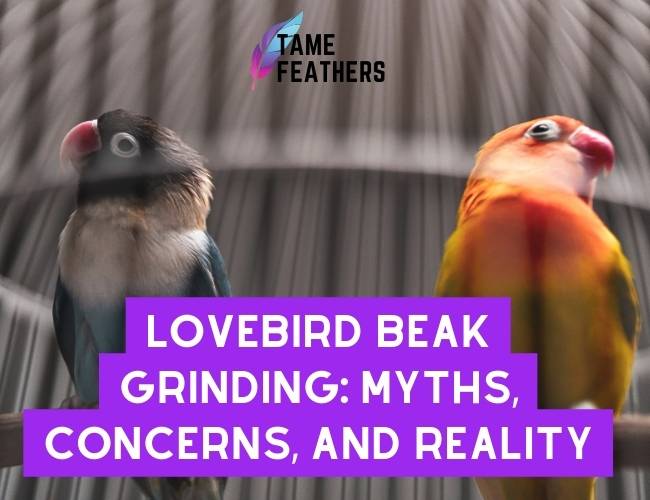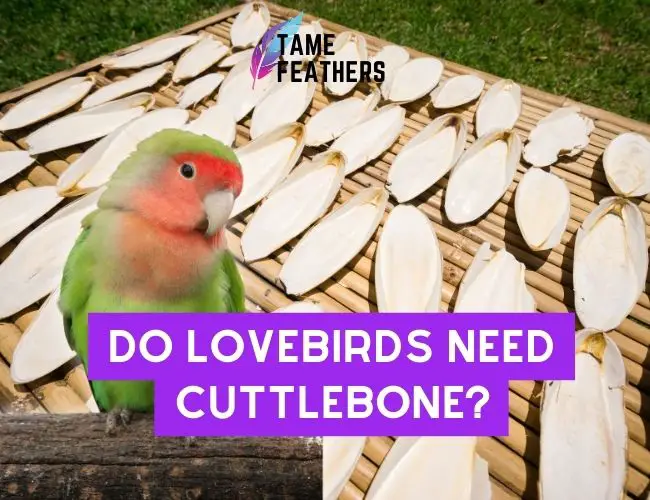Do you wish to strengthen your relationship with your lovebird? Have you heard that these birds can learn to speak, but you’re not sure where to begin? If so, you should read this article! We’ll provide you a simple, step-by-step tutorial on how to teach your lovebird to talk in this article.
We cover everything, including creating the ideal conditions and supplying the essential resources for success.
Therefore, if you’re just starting off, look no further! Let’s get going.
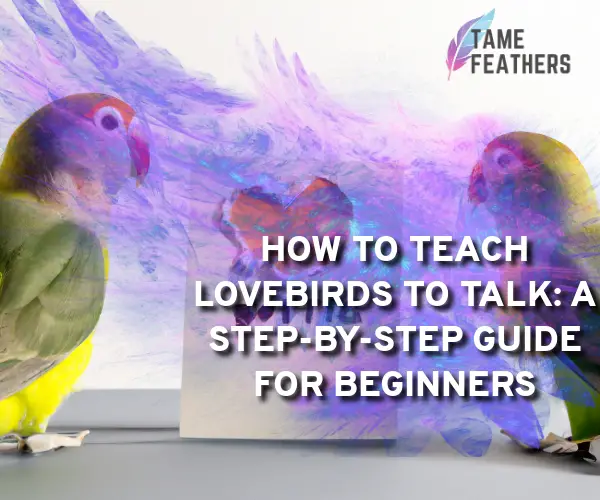
- Can You Teach Lovebirds to Talk?
- What Age Should I Start Teaching My Lovebird To Talk?
- How Do I Begin Training My Lovebird To Talk?
- How Often Should I Practice Talking With My Lovebird?
- Is There A Special Trick That Helps When Teaching Your Love Bird To Speak Faster?
- Have You Tried This Gourmet Parrot Food?
- We Thought You Might Want To Know This About Lovebirds… 😊
Can You Teach Lovebirds to Talk?
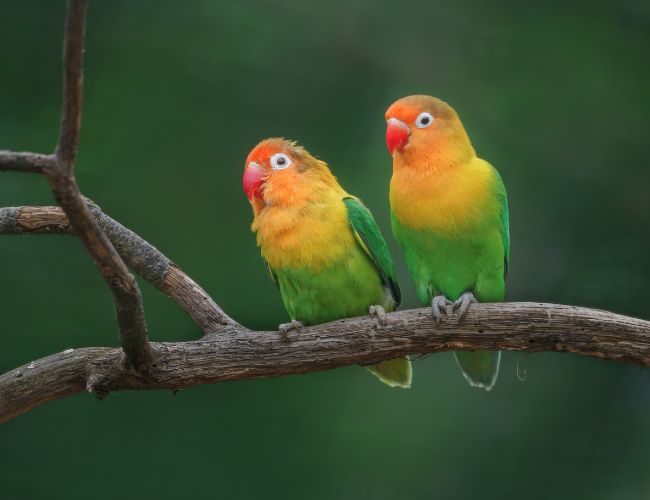
Yes, you can teach lovebirds to talk! They are capable of mimicking sounds and words quite accurately – though their voices may be a bit high-pitched for some listeners.
With patience and consistency, your pet lovebird can learn to speak just like any other parrot species. It is important that the training begin when the bird is young as this will help it associate sounds with meaning more easily.
Adult birds can also learn to talk but they require additional time and effort in order for them to master new concepts.
What Age Should I Start Teaching My Lovebird To Talk?
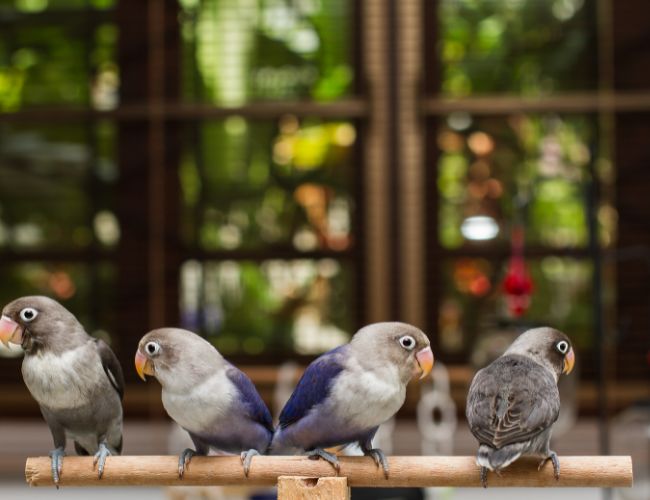
It is best to start teaching your lovebird how to talk around 6 months old or younger if possible. This age range allows them the most potential for success in learning language skills faster than older birds would be able to do so.
Younger birds have a tendency toward being naturally curious about everything around them which gives them an advantage when it comes time for lessons in speaking or understanding certain commands or words from their owners.
Additionally, if taught early enough, baby lovebirds may retain information better because of their natural intelligence level at this stage of development which helps foster quicker results during practice sessions with trainers or owners alike!
How Do I Begin Training My Lovebird To Talk?

The best way to start training your lovebird how to talk is by using positive reinforcement techniques such as praise, treats and playtime after successfully completing each lesson task correctly within a given period of time (e.g., five minutes).
This will encourage the bird’s willingness towards wanting more tasks while also helping him/her become familiarized with different sounds associated with each word they are trying hard not just memorize but understand what they mean too!
As long as you remain consistent in repeating these same steps throughout multiple practice sessions over days weeks months even years.
Eventually, your little feathered friend should be able to master its various vocabulary lessons giving further impetus into mastering even more language skills afterwards!
How Often Should I Practice Talking With My Lovebird?
Ideally, you should aim for practicing talking with your pet every day if possible – especially during periods where there’s no school or work commitments preventing regular routine meetings between owner & birdie alike!
Even short 10-15 minute mini talks done several times throughout the week could yield great results.
However longer 45 minute + conversations held on weekends might prove beneficial since those provide ample opportunities allowing both parties involved plenty chances engaging one another through meaningful conversations that could help strengthen bonds even further between humans & animals alike.
Is There A Special Trick That Helps When Teaching Your Love Bird To Speak Faster?
Yes indeed there are tricks that make teaching easier. First off, always use words consistently so that they become second nature when spoken aloud.
Secondly, try breaking down syllables one step at a time (e..g “ca” then “cat” then finally whole phrase such as “I see cat”) until goal has been fully achieved.
Next, think outside the box. Find ways to make repetitive drills fun rather than tedious chore to ensure that progress continues swiftly forward.
Lastly, don’t forget reward system whenever appropriate. Dole out treats praise etcetera following successful completion task(s) again reinforcing desired behavior patterns needed achieve end result faster than expected.
Have You Tried This Gourmet Parrot Food?
We get so much good feedback on these Bistro Parrot Food packs! Our readers feathered friends are absolutely loving it! The best part is, it is suitable for all birds and parrot-types. Parakeets, Cockatiels, African Greys, etc. Check it out…
[amazon box=”B086KLFSZQ”]
We Thought You Might Want To Know This About Lovebirds… 😊
can lovebirds and parakeets live together
how to take care of baby lovebirds
lovebird toronto

